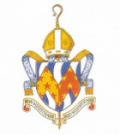Wales: Test case challenges ‘double discrimination’ of Swansea’s school transport policy

On 10 and 11 February 2015, a High Court Judge sitting in Swansea will hear a legal challenge brought to overturn a controversial and discriminatory school transport policy adopted by Swansea City and County Council. Under the new policy, from September this year, the Council will no longer provide free places on the school buses currently used by pupils attending voluntary-aided Catholic and Church of Wales schools in Swansea. Some children travel for up to an hour and 50 minutes on the buses to reach school each morning. However, at the same time, the Council will maintain free school transport on a parallel school bus network used by pupils at all of the county’s Welsh language schools, regardless of the financial circumstances of the families who benefit.
The test case is jointly brought by Bishop Vaughan Catholic Comprehensive School, the only Catholic and Church of Wales secondary school in the area, ‘Child W’, whose siblings currently attend the school using free school transport to which she will now not be entitled and the Diocese of Menevia, which supports five of the six affected schools.
They argue that the new policy is doubly discriminatory because it impacts particularly severely on Black and Minority Ethnic children (who make up a quarter of the children attending Swansea’s Catholic and Church of Wales schools, but only a tiny proportion in Welsh language schools) and on those who seek a Catholic or Church of Wales-based education.
Swansea Council is defending the policy on the basis that it needs to save money and the affected children are ‘statistically insignificant’.
Laura Howden-Evans, Bursar of Bishop Vaughan School said today: "The new policy is brutal. If it stands, its impact will be devastating on Swansea children seeking a Catholic education. At our school, over half of the pupils live the most deprived areas of Wales, a fifth receive free school meals and a quarter rely on free school transport. Families like theirs will simply be unable to pay for transport to school once it is withdrawn. The first to be hit will be siblings of children already here, children just like Child W, who want to come to the school from September but need free transport to do so.
No one bringing this case has any wish to deprive children who seek an education in the Welsh language from accessing the Swansea schools where that is available. Theirs is an educational preference which demands respect for reasons too obvious to state. We have turned to the Court because other preferences arising from fundamental beliefs and connections to a community, in particular those for a Catholic education, also demand respect and, in our view, equal respect. There is no justification for treating Catholic and Church of Wales schools differently from Welsh language schools when it comes to free school transport."
The Diocese of Menevia is a Roman Catholic diocese based in Swansea, serving South West Wales’ 27,500 Catholics. Bernard Stuart, its Director of Education said today: "Catholic schools are an integral part of the Catholic community. Their existence allows parents a genuine choice to educate their children in accordance with their religious and philosophical convictions. As Catholics, we in turn have a duty to ensure that choice is open to those who socially, academically, physically or emotionally disadvantaged. Service to those who are amongst the most disadvantaged in our society has always been central to the mission of Catholic education. Very regrettably, Swansea City and County Council does not see things this way. Withdrawing free school transport from those who need it most will make the exercise of their choice to attend local Catholic schools completely impractical. We are hopeful the Court will see that and overturn this invidious policy."
The solicitor bringing the case, John Halford, said: "People understand that local authorities are faced with hard financial choices. What they find very difficult to understand is a choice that bestows a benefit on one sector of the community who passionately want to be educated in Welsh, but withdraws it from another who, just as passionately, want to be educated in their own faith. Fairness, and the law, demand a very high standard of justification for discrimination of this kind. That justification is strikingly missing from the Council’s decision. In fact, it believed, and apparently still does, that it was not even discriminating."
The Bishop of Menevia, the Right Reverend Tom Burns, said: “We are standing up for children who are being discriminated against. They are not able to speak or vote for themselves. Their parents wish to exercise their right to choose a faith school for the education of their children. Faith schools reliably follow national curricula, and contribute enormously to promoting the values of Church and society in this land. They also are leaders in academic standards, which are reflected favourably in Welsh national statistics. The recent re-discovery of the three foundation principles of Magna Carta shows itsemphasis on the presence of Church in Britain. Church and Faith schools stand up especially for the poor and the deprived. They should be retained as beacons of excellence in our education world, instead of having their future threatened by Swansea’s un-fare measures.”















